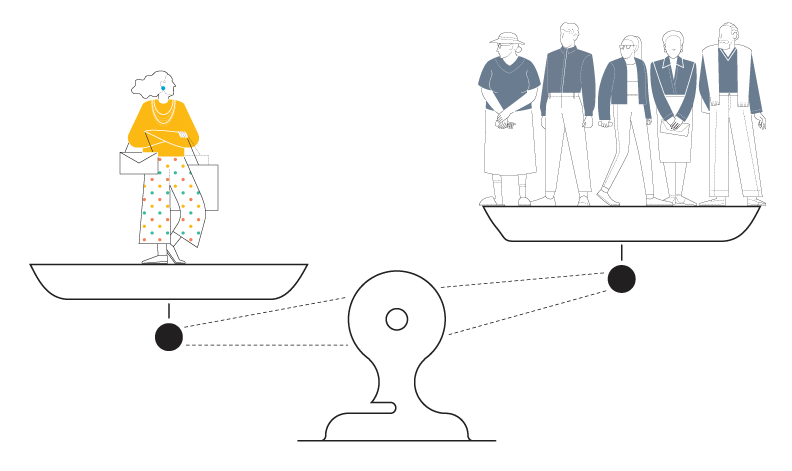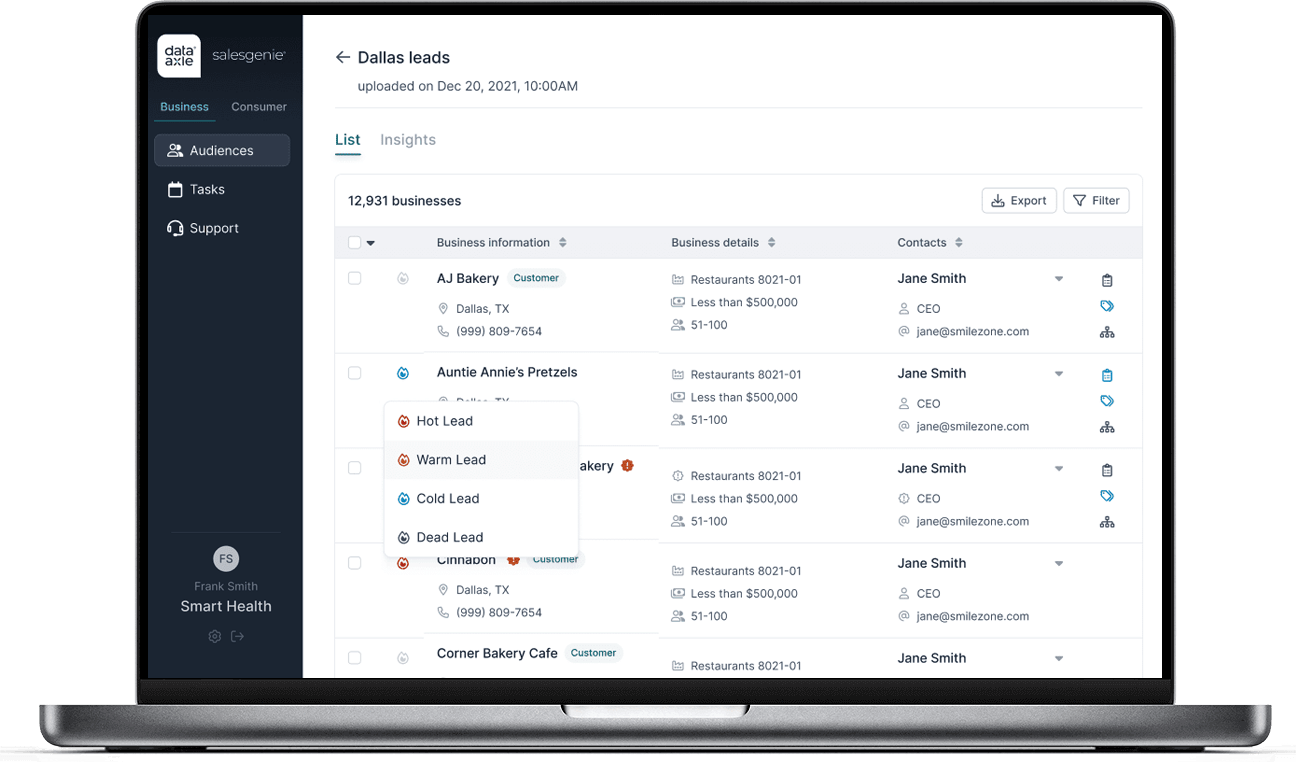Let’s be honest: there is no one product or service that is right for everyone. No matter how great your company is, no matter how phenomenal what your offer may be, you aren’t going to win over every potential customer.
And that’s okay.
What isn’t okay is wasting your time trying to market to a lead that is never going to be interested. Especially because doing so takes up the time, attention, and resources you could otherwise be directing toward a lead who fits your ideal customer profile.
It would be like trying to sell denture cream at a high school. The potential leads there are decades outside your ideal demographic, and while you might be able to convince one or two that your product holds some value for them, you’d be a whole lot better off hitting up the retirement home down the street.
If only identifying potential leads were as simple for every business.
But that’s where lead generation comes in.
Quality over quantity
The question of what is lead generation is simple enough to answer: it’s all about stimulating and attracting interest, and then converting that interest into leads you can follow up with later.
A lead is nothing more than a potential customer. But remember: not every person on the street will be a lead for your unique business.

You could spam everyone within a 30-block radius of your business with mailers and hope you might pique some interest. In fact, doing so is one potential lead generation method (though admittedly, one of the more costly and time-consuming methods available). But every one of those people you send one of those mailers to is not a lead.
Only the ones who follow up are.
You see, the difference between having someone’s contact information and having their actual interest in your product or service is huge. Contact information is simple enough to come by, but if the person you’re contacting wasn’t ever going to be interested in what you have to offer, reaching out to them really doesn’t do you any good.
In fact, it costs you time and resources that could have been better spent elsewhere.
Lead generation is about so much more than simply collecting contact information. It’s about narrowing down a list of potential customers based on actual interest, not just proximity or ease of access.
And once you have those leads, you know where to turn your attention to.
Lead generation techniques that work
There are a lot of valuable lead generation techniques that companies have mastered. And some of the most valuable tend to rely on technology.
After all, if you’re going to cast a net out blindly into the ocean just to see what you can catch, you want to spend as little time and effort doing so as possible.
Okay, so lead generation is a bit more precise than just throwing out a net (at least, it is if you’re doing it right). But you get the point.
Social media posts, blogging, creating a website that people want to come back to; these are all ways of casting that net and bringing in potential leads that are actually interested in what your company is doing. And these methods are right up there with some of the simplest, most cost-effective lead generation techniques available.
That is, if you know what you’re doing.
You can’t just throw 20 posts a day up on your social media feed and hope that one will stick, for instance. As with any other form of marketing, there are methods to the madness of social media success. But if you do your research and you employ qualified people, your online posts can be a great source of potential leads.
Other valuable lead generation techniques include:
- In-person networking
- Pay per click advertising
- Search Engine Optimization (SEO)
- Throwing live events
- Hosting webinars
- Producing e-books
All these techniques have the potential to produce quality leads.
But what if we told you there was a better way?
Working smarter, not harder
You could spend months developing a successful lead generation strategy, hiring the staff you need to carry that strategy out, and spending the money to do so.
Or… you could let Salesgenie® generate those leads for you.

Salesgenie harnesses business and consumer data to pinpoint leads you can count on. You can search by industry, ZIP Code, age, and a variety of other demographics and firmographics to generate a list of potential leads more likely to show interest in what you’ve got to offer than any other.
And once you’ve cultivated your list of leads based on years of industry data, we’ll even help you make that initial contact.
You’ve got your leads, now what?
Whether you generate your leads through your own marketing techniques, or the use of Salesgenie’s powerful online platform, you’re going to want a way to organize and track those leads moving forward.
Who have you contacted?
Who have you heard back from?
Who has expressed genuine interest?
Who might you be able to transition from a Marketing Qualified Lead (MQL) to a Sales Qualified Lead (SQL)?
You could try to keep track of all this on your own, but the bigger your business becomes, the more difficult that task will be. At which point, you may want to consider investing in a CRM software system to help you manage those leads you worked so hard to get.
What is CRM software?
CRM simply stands for Customer Relationship Management. While you could technically input your customer data into a spreadsheet and call it a CRM system (and that’s how many CRM for small business systems start out), there are actual CRM software programs that can help you manage your leads in a far more effective manner.
These systems keep all your customer (and potential customer) data in one place, allowing you to track things like how frequently a lead has reached out with questions or how closely they match your Ideal Customer Avatar (ICA).
Who is already a customer? Who is most likely to become one? Where should you be investing the bulk of your marketing efforts?
A CRM software system can help you to track, and identify, the answers to each one of those questions.
These systems can also help you to manage your marketing efforts in a way that saves you from reaching out to potential customers too often; a mistake many small businesses make. Because yes, there are plenty of CRM for small business software options available.
And managing your leads in an effective manner is absolutely an investment worth making.
From lead to contact
You’ve answered the question of what is lead generation and have gone from asking “What is CRM software?” to embracing your own CRM for small business method. You’ve formulated a plan and you have even pulled together a promising list of leads.
But possessing the ability to generate strong leads is only half the battle. Even the very best lead generation techniques can only get you so far if you haven’t yet developed an equally successfully marketing plan.
Remember: competition is fierce in just about every single industry you can imagine. No matter how unique your product or service, someone else has probably created something similar.
Which means you must take this opportunity to convince your leads you’re doing it better.
You only get one chance to make a first impression, and that initial contact you make after generating your leads is exactly that: your chance at a first impression. So, take the time to consider what type of impression you really want to make. And when you’re ready, take that leap.






